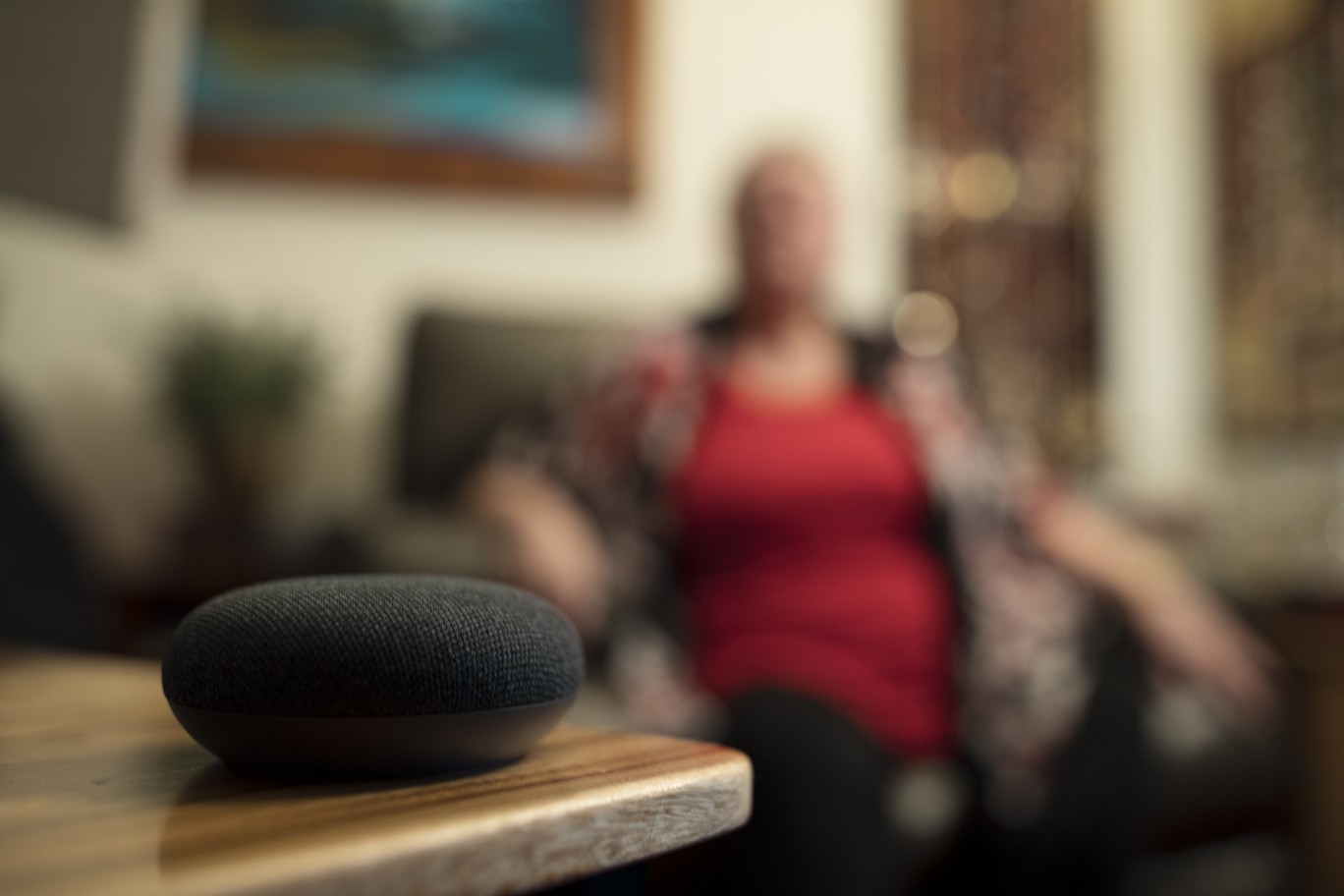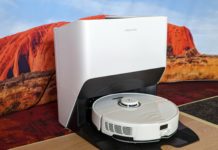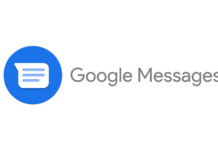Australian not-for-profit health care provider Feros Care announced an Australian-first integration with the Google Assistant to provide customers with access to self-management service options via a voice interface.
The announcement was detailed this morning at Google Australia’s Wellbeing Breakfast by the company’s CIO Glenn Payne.
Payne explained how Feros Care moved from the rollout of a mobile app portal system through to voice control after testing their system with customers.
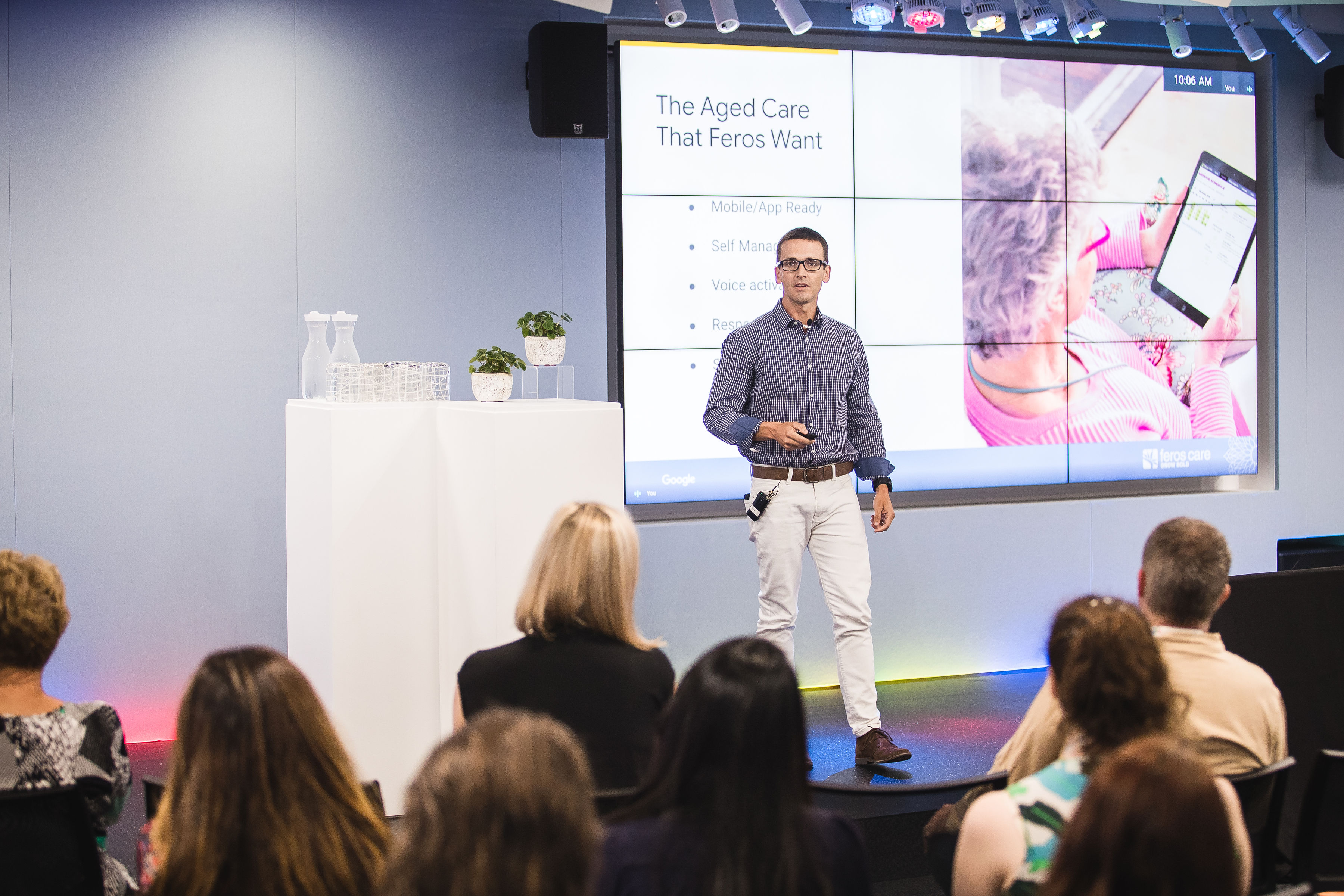
Attendees at the event were asked to imagine themselves at be age 85 – perhaps we’d have developed some mobility, dexterity or sight issues, and been set up with a managed care plan for treatment, appointments and assistance. Most such plans require phone interaction to check or change details, and allowing unknown staff from your provider into your house, which can be frustrating and concerning for members.
Feros Care recently rolled out a self-service portal via a mobile app called MyFeros that allows customers to find information about scheduled appointments including details such as which staff members would be in attendance for peace of mind.
It was during the testing of the app, Payne revealed that Feros Care had its “aha” moment as they realised a customer with Parkinson’s had trouble making his way around the app, and wanted to find a way to do better by him and other customers.
Fast-forward to today, and MyFeros services are now available via the Google Assistant with the command “Hey Google, ask Feros Care” simplifying access for customers with the Assistant on their devices or in their homes to a conversation.
We needed a way to cater for all our clients, not just those who can use a computer, and voice-command technology enables us to do that.
Glenn Payne, CIO Feros Care
The current implementation is a basic pilot, where data can be retrieved from the MyFeros portal but requests serviced by Google’s Assistant voice commands are mostly sent to Feros Care staff to be handled. The company intends to roll out deeper integration over the coming months.
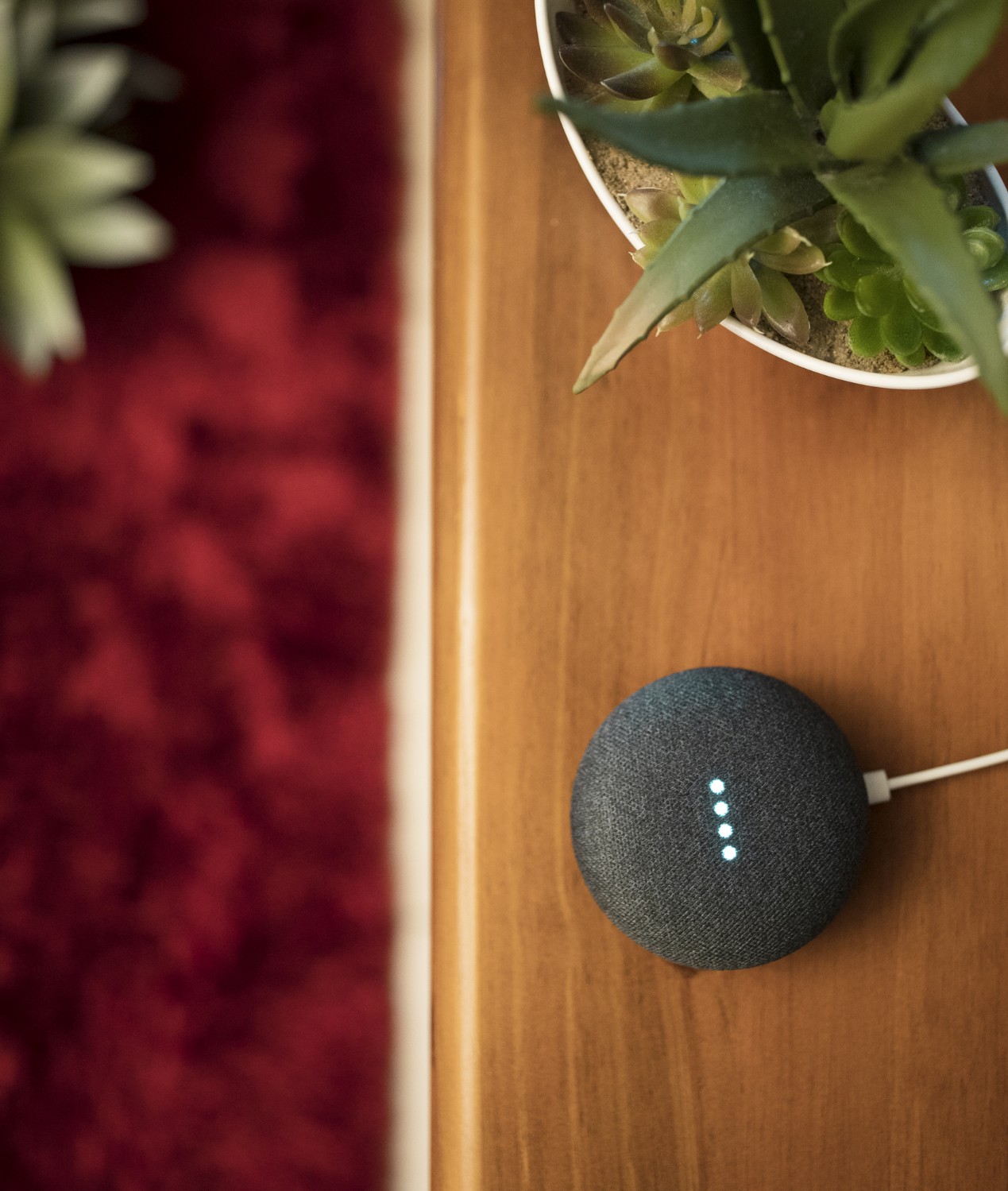
Feros Care client Pamela Hanley, 73, who participated in the pilot, was in attendance at the event this morning. She related how the new technology had benefited her after after spending time in hospital recently. “I couldn’t get out of bed to use the computer but was able to ask Google Home what Feros Care services I had that day, which staff were coming to see me and at what time,” she said.
“I’ve found it to be an excellent tool and I just hope people use it. They certainly shouldn’t be daunted.”
Setup of the service with voice commands could be as simple as adding a Google Home Mini to a customer’s house, although many with smart phones and tablets would be able to use Google Assistant on those devices as well.
The Assistant asks “Hi, how can I help?” every time it pops up, and it’s great to hear about developments like this one, making demonstrable differences to people’s lives – especially for the elderly and disabled who stand to benefit the most from it.
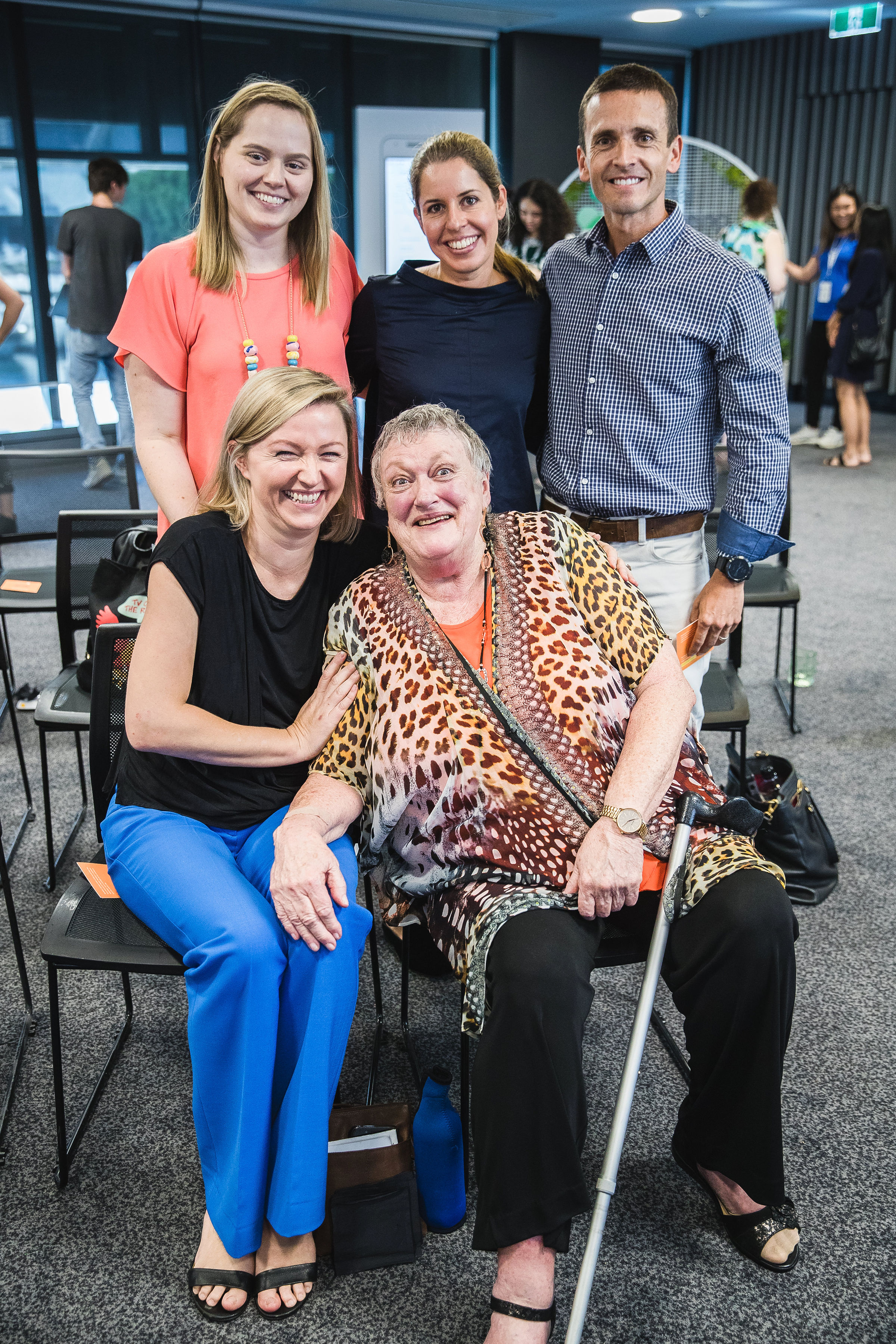
Ausdroid attended Google’s Wellbeing breakfast event on March 12, where we heard from the company and its partners about trends and initiatives to promote wellbeing through use of technology. We’ll be bringing some of these stories to you over the next few days.

